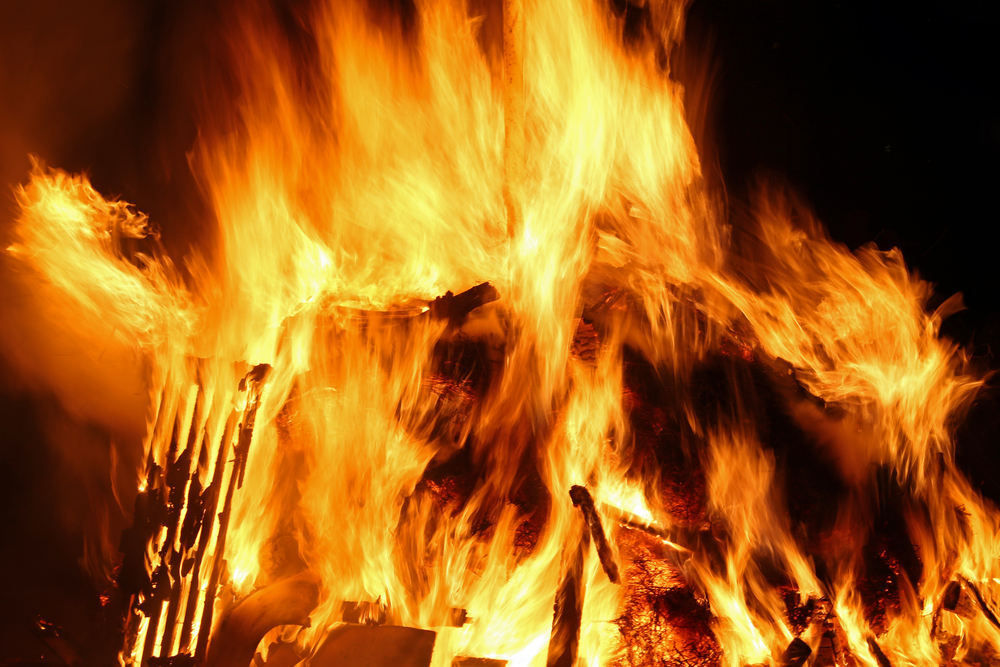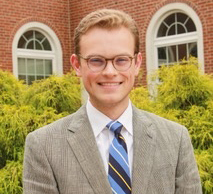Dante’s purpose in writing the Divine Comedy is placed in the mouth of Virgil a mere 76 lines into Canto I of the Inferno. The poet questions his charge’s malaise at his seemingly hopeless state: “But you, why are you turning back to misery? Why do you not climb the peak that gives delight, origin and cause of every joy?” The answer is clear: the Comedy is Dante’s quest to seek the God who reigns above the hellscape in which he finds himself, to find true happiness in the City of God.
In The Inferno, Winston Brady remakes the path to happiness as relationship with God, modernizing Dante’s insights into humanity’s nature and need for salvation. The Florentine found himself at the door of Hell in despair over the death of Beatrice and exile from his beloved city. Brady writes his novel as a classical educator. His adept familiarity with both the Great Books and American history is evident throughout the novel, as he incorporates insights and anecdotes from classical writers and modern authors like Lewis and Tolkien. Brady’s protagonist, Evan Esco (after the Latin evanesco, to disappear), however, represents a younger Brady—depressed, suicidal, and without hope.
Brady places Esco in the woods of Tidewater, Virginia, near the College of William and Mary, where the suffering man finds himself in a dark wood outside Hell after attempting suicide. It is there that he, like Dante, meets his guide through the underworld: Ernest Hemingway.
Esco’s fundamental problem is that he has replaced God with “the beast”—the follies and idols of this world—and he must be brought to see the futility of succumbing to the beast’s charms. Esco was unpopular, and The Inferno reveals that his desire to become well-liked was rooted in a desire for autonomous freedom, the same fault that afflicts the sinners at all levels of Hell, most of whom are being punished in ways similar to Dante’s shades.
There is no Limbo in Brady’s Inferno, and Hemingway, a baptized Catholic, is condemned to his place of torment—the Forest of Suicides. Hemingway is a curious guide, at once under God’s punishment and yet perceptive about Esco’s need to repent. The characters of this Inferno range from utterly rebellious (Lyndon B. Johnson) to completely aware and even repentant of their faults (Hemingway and Thomas Jefferson). Whether regretful of their earthly lives or bitter at their Creator, each serves in his own way as a guide to help Esco understand what true repentance is.
The beast calls each of us to indulge our own base desires, which can never truly satisfy. The irony of the demons’ constant attempts to restrain Esco in Hell—calling him to a false freedom of rebellion against God—is that God himself is the only possible source of deliverance. Devilish freedom is far from liberating. It is a burden from which only God can save him.
The Inferno is fundamentally a book about sin and repentance, and it well reflects Dante’s message in the Comedy to lay aside idols and commune with God. Yet Brady has also described his book as a “novel about contemporary American politics.” This is not entirely foreign to the original Comedy. Dante included prominent Florentines to critique their idolatry and obsession with power and wealth. The glutton Ciacco’s admission that “pride, envy, and avarice are the sparks that have set the hearts of all on fire” could easily exemplify Brady’s thesis as well.
Yet while Florentine politics takes a subtextual role in Dante’s work, American politics and culture are more of the text for Brady. This Inferno describes a contemporary America that is a land of idolatry, power, money, and sex. It is a land that has forgotten God and replaced him with autonomy. Brady never mentions debates on the right about the contemporary viability of the American founding’s political project, but the words of some shades, including in this case a remarkably repentant Jefferson, seem almost post-liberal:
“Indeed, the folly of it all, my vision that an Empire of Liberty might stretch across the American continent, a land of commerce and industry, or happiness and virtue, of life, liberty, and the pursuit of happiness, the manifestation of every dream I ever dreamed that our people might be free, free in every meaningful way and from every impediment that might constrain their good and noble choices, free whether or not the happiness they pursued might lead to or, indeed, lead from their Creator. That was the empire I dreamed of and endeavored my whole life to build, the folly of which, now that I recognize its logical conclusion, only adds to my torment in Hell.”
Through a few different characters, Brady intermittently traces the fateful fruits of libertine freedom throughout American history. It is this dream of an “Empire of Liberty” that—intentionally or not—led to the cultural revolution of the 1960s and the ensuing alienation and despair that afflicts so many young Americans today, including Esco.
Numerous other residents of Hell have their own perspectives on the decline of our nation. Benedict Arnold is condemned for being a traitor, yet he suggests that the Patriots were not without philosophical fault either: “So yes, I betrayed the revolution once I realized its true course, the nature of the beast they let loose upon the world: humanity is its own worst scourge, and liberty does nothing to alleviate our curse but truly serves to make it worse.” Brady’s sinners are not always trustworthy, but this comment is never contradicted. Martin Van Buren laments antebellum moral compromises over slavery, a representative of Tammany Hall recounts the power-hungry corruption of so many politicians, and Esco’s cultural idols, Everett Man and Kurt Cobain, exemplify the personal tragedy that results from a broken, godless society.
While answering the fundamental theological question (How does one repent?) with a simple yet profound answer (faith in Christ alone), a persistent political question is left unanswered by Brady: Is there an America that glorifies God and exemplifies civic virtue? This book is merely an Inferno, not a complete Comedy, so a lack of heroes is somewhat understandable, though it does leave the reader longing for more. Hemingway is no match for Dante’s Virgil. A story of Hell lends itself well to telling of America’s vices, but not of its virtues. Brady pictures John Adams and Jefferson like Dante’s Ulysses and Diomedes, twin flames intertwined. Jefferson says much, but Adams is relatively silent. One wishes that the Yankee Federalist whom Russell Kirk described as placing “liberty under law” had been allowed to give his own account of his nation’s future.
John D. Wilsey has spoken of the authenticity of a nation. Nations, like individuals, go on quests for their true selves, exemplified in their names, traditions, flags, and heroes. Danger lies when that quest reaches a false conclusion of moral purity. But many of the American Founders recognized the potential dangers of unchecked freedom. Yes, civil liberty can lead to license, but when rightly ordered, it can lead to human flourishing, the common good, and even a space for right relationship with God.
The end of this Inferno departs significantly from its predecessor. Before the throne of Satan and his arrayed demons, Esco is offered a choice: reject God and choose freedom in Satan’s kingdom or serve God within his limits. He is faced with the same question as Job, and he chooses similarly. He cannot bear to reject God’s providential care, which has given him another opportunity to serve his Creator in life.
Brady’s heart for suffering young Americans is evident in this book, which issues a powerful call to them to repent of their idols—promoted by a culture hostile to their maturing and a healthy prosperity—and turn to a Savior who can take their burdens. He also reminds us of the effects of sin on our nation. America has a long and complicated history, and many of its leaders have failed to live up to its founding principles—and their theological and moral foundations. Several of them appear in this book, and one can hope that its readers do not repeat their errors. But readers of the Inferno will hopefully also be reminded of the many great Americans Esco might have met had he continued into Paradise, Americans who recognized both human fallenness and human faithfulness in American history.
What might John Witherspoon have reminded Esco about this Empire of Liberty? He probably would have repeated this:
He is the best friend to American liberty who is most sincere and active in promoting true and undefiled religion, and who sets himself with the greatest firmness to bear down profanity and immorality of every kind. Whoever is an avowed enemy to God, I scruple not to call him an enemy to his country.
Spiritual liberty in Christ is the only solid foundation for true political liberty. Remembering this truth could be the beginning of an escape from the troubles experienced by Evan Esco and Americans like him.

